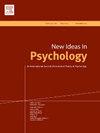Probabilistic processing: Possible, probable, or preposterous? A dialectical essay
IF 2.9
3区 心理学
Q2 PSYCHOLOGY, EXPERIMENTAL
引用次数: 0
Abstract
Does the brain operate probabilistically, or are probabilistic models merely useful tools for approximating brain function? This dialectical essay addresses this foundational question by presenting two opposing viewpoints. The Thesis defends the view that the brain engages in genuine probabilistic inference, drawing on empirical findings from studies of predictive coding in perception and cognition. The Antithesis challenges this view, arguing that the question is ill-posed and warns against conflating abstract computational principles with the intractable complexity of neural processes. In the Synthesis, the authors identify areas of conceptual overlap, highlight persistent theoretical tensions, and emphasize that the central issue is not whether the brain encodes full probability distributions, but how it supports the computations formalized by probabilistic models. This exchange aims to sharpen the terms of the debate and provide a more nuanced perspective on the promise and limits of probabilistic approaches in neuroscience.
概率处理:可能的、可能的还是荒谬的?辩证散文
大脑是按概率运作的,还是概率模型仅仅是近似大脑功能的有用工具?这篇辩证的文章通过提出两种相反的观点来解决这个基本问题。这篇论文为大脑参与真正的概率推理的观点进行了辩护,借鉴了感知和认知中预测编码研究的经验发现。《反题》挑战了这一观点,认为这个问题是病态的,并警告不要将抽象的计算原理与神经过程的难以处理的复杂性混为一谈。在《综合》一书中,作者指出了概念重叠的领域,强调了持续存在的理论矛盾,并强调核心问题不是大脑是否对全部概率分布进行编码,而是它如何支持由概率模型形式化的计算。这次交流的目的是使辩论更加尖锐,并为神经科学中概率方法的前景和局限性提供更细致入微的视角。
本文章由计算机程序翻译,如有差异,请以英文原文为准。
求助全文
约1分钟内获得全文
求助全文
来源期刊

New Ideas in Psychology
Multiple-
CiteScore
4.80
自引率
3.80%
发文量
37
期刊介绍:
New Ideas in Psychology is a journal for theoretical psychology in its broadest sense. We are looking for new and seminal ideas, from within Psychology and from other fields that have something to bring to Psychology. We welcome presentations and criticisms of theory, of background metaphysics, and of fundamental issues of method, both empirical and conceptual. We put special emphasis on the need for informed discussion of psychological theories to be interdisciplinary. Empirical papers are accepted at New Ideas in Psychology, but only as long as they focus on conceptual issues and are theoretically creative. We are also open to comments or debate, interviews, and book reviews.
 求助内容:
求助内容: 应助结果提醒方式:
应助结果提醒方式:


